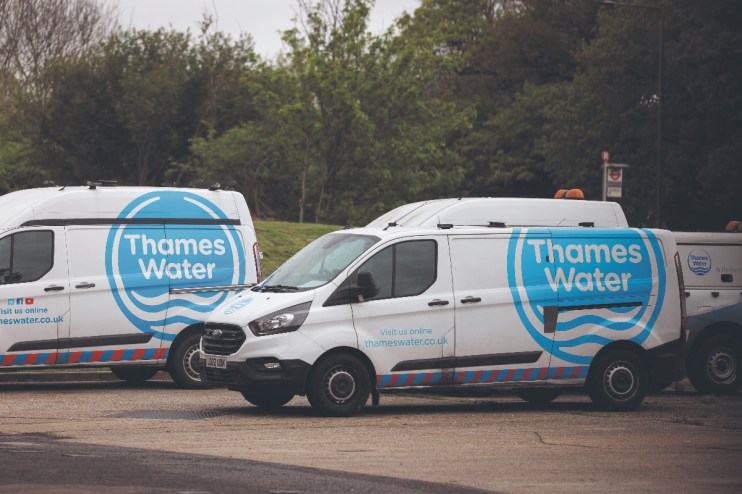Thames Water and Ofwat tight-lipped on plans to cut fines and avoid nationalisation

Thames Water and the regulator Ofwat have refused to be drawn on speculation fines will be cut in a bid to reduce the debt burdens facing the company and ultimately avoid nationalisation.
The beleaguered water company said it would not be commenting on the claims first reported by the FT on Wednesday.
This comes as Thames Water sits on a £18bn debt pile, with rumours swirling that it could be nationalised in a bid to stop it collapsing.
Thames was reportedly planning to raise its bills to help chip away at its mammoth debt, while last month, the holding company of Thames Water, Kemble, notified creditors that it has failed to pay interest on some of its debts.
The company has also been locked in a battle with the regulator over its bonuses. Earlier in the month, Ofwat said it was “minded” to take action against Thames after an investigation looking into why its bosses were paid millions despite mounting problems.
This morning, the FT reported that the regulator was drawing up a “recovery regime” for the water firm, and other companies with troubled finances.
Firms in this regime would reportedly have their penalties minimised or got rid of, as an incentive to clean up their act.
Thames Water has asked Ofwat to allow it to increase bills for customers. A decision will be made by 11 July.
Ofwat would not comment on the report until 11 July, it confirmed to City A.M.
Thames Water was also accuseD, of having leaked 14bn litres of sewage into the river Thames.
The company, which is the largest water company in the country serving London, and 18m customers, told City A.M.: “We regard all discharges as unacceptable and taking action to improve the health of rivers is a key focus for us. We’re committed to stopping them from being necessary.
A spokesperson said: “The Thames Tideway Tunnel, a £4.5 billion investment, is nearing completion. This project, combined with previous upgrades we’ve made to our London sewage works and the building of the Lee Tunnel, will capture 95 per cent of the volume of untreated sewage currently entering the tidal Thames in a typical year. ”
“It is already widely known and understood that we built a volume monitor at Mogden Sewage Treatment Works to assist with the construction design of the Thames Tideway Tunnel. To retrofit the entire network with volume monitors would be prohibitively expensive at a time when our efforts and resources are being put into improving our network.
“We have published plans to upgrade over 250 of our sewage treatment works and sewers to treat the high volumes of incoming sewage and reduce the need for overflows during wet weather.”
“In London, we have started the £100 million upgrade of Mogden sewage treatment works, which will increase capacity and reduce the number of storm discharges from the site, and we’re also spending £145 million upgrading Beckton sewage works.
“We’ve put transparency at the heart of what we do, and we were the first water company to publish a real time data map on our website, which in its first year has been viewed over 350,000 times.”
Massive infrastructure works from Thames Water will of course cost money, with fears among campaigners that this will require bills to go up still further, in a bid to pay for it.
Labour’s shadow environment secretary Steve Reed shared the FT story about cutting fines, commenting on X that “Labour will put the water companies under tough special measures. We will block law breaking bosses’ bonuses until they clean up their filth. With Labour, the polluter – not the public, will pay.”
Earlier this week, the leader of the Liberal Democrats, Sir Ed Davey, said Thames Water should be “ripped up” and no longer allowed to be for profit, after it emerged some 14bn litres of sewage were released in 2023.
DEFRA and the Conservatives have been asked for comment on plans to cut penalties for indebted water firms.
